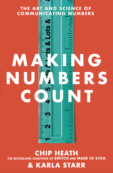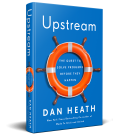In Switch, we discuss some fascinating research in psychology that shows that our self-control is an exhaustible resource — that we can “tire it out,” as though it were an overworked muscle. (Check out this essential academic paper by Baumeister et al, or for the Cliff’s Notes version, see this video.)
Now comes a piece in Scientific American holding that dogs experience the same “exhaustibility.” Dogs who have been asked to “stay” in place for a long time — which burns their self-control, as any dog owner surely knows — are less able/willing to stick with a frustrating task (specifically, trying to get a treat out of a toy that is actually impenetrable).
The researchers close their article with this provocative statement: “It appears that the hallmark sense of human identity—our selfhood—is not a prerequisite for self-discipline. Whatever it is that makes us go to the gym and save for college is fueled by the same brain mechanisms that enable our hounds to sacrifice their own impulses and obey.”



